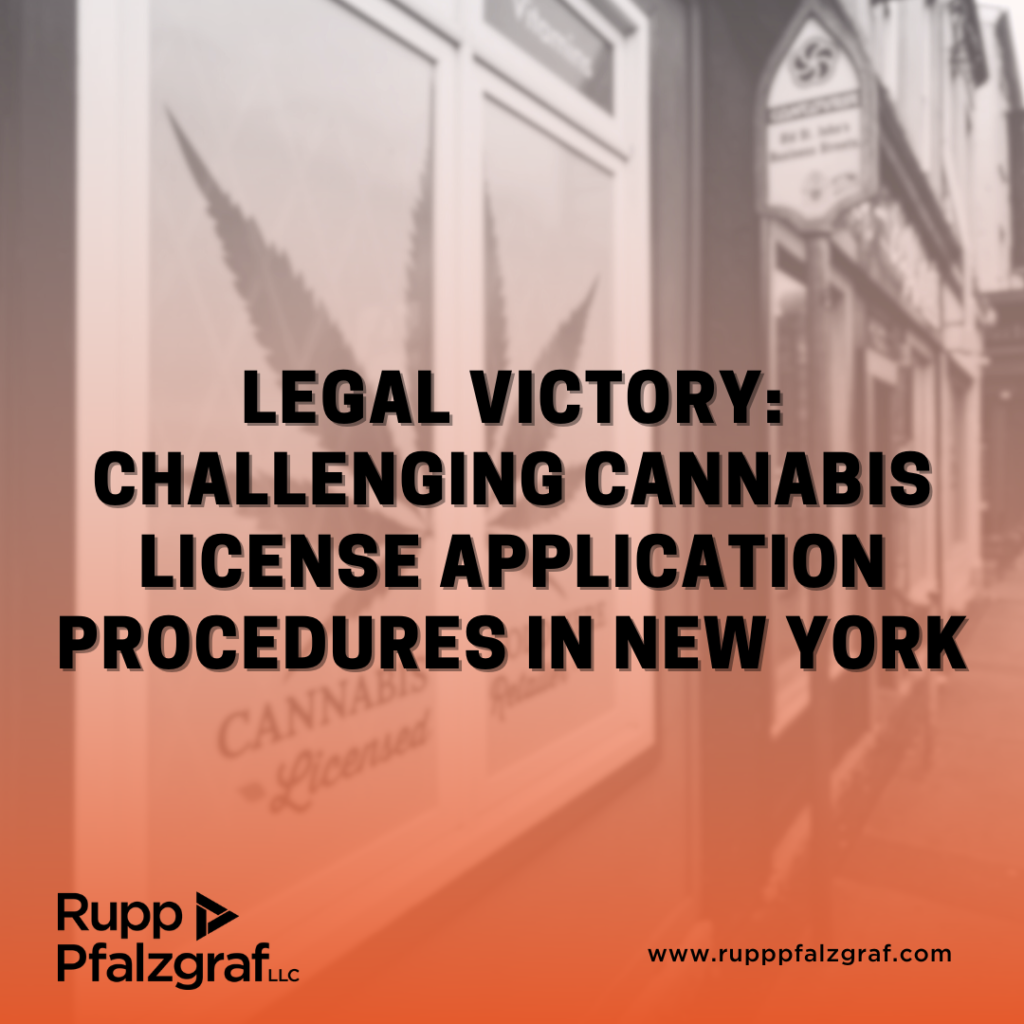
Rupp Pfalzgraf attorneys Marc Romanowski and Margaret Drzewiecki recently achieved a significant win in the New York State Supreme Court, Albany County, on behalf of Organic Blooms, LLC, and other petitioners. The case challenged the licensing process for adult-use cannabis dispensaries under the Marihuana Regulation and Taxation Act (MRTA), specifically addressing rules implemented by the New York State Cannabis Control Board (CCB) and the Office of Cannabis Management (OCM).
The petitioners argued that the CCB and OCM violated the MRTA by allowing certain applicants to bypass important requirements of the Act, like securing a location for the proposed dispensary and notifying municipalities, through programs such as the Conditional Adult Use Retail Dispensary (CAURD) program. This led to delays in the review process for compliant applications, putting these applicants at a disadvantage.
The court agreed, finding that the actions of the CCB and OCM likely exceeded their authority under the MRTA. The law requires that the initial licensing period for cannabis dispensaries be open to all applicants at the same time and creating a separate process for certain applicants undermined this requirement. The court also recognized that allowing certain applicants to skip key steps unfairly harmed compliant applicants, putting them at risk of losing proximity protection of their already secured locations and diminishing their opportunity to be among the first in the rapidly growing market.
In its decision, the court denied the state’s motion to dismiss the case and issued a preliminary injunction. This injunction prevents the review of non-compliant CAURD and provisional applications, ensuring that compliant applications are prioritized while the case proceeds.
This outcome is an important step in ensuring fairness and transparency in New York’s rapidly developing cannabis market. As the case progresses, the implications of this decision will continue to shape the future of cannabis regulation in New York.

